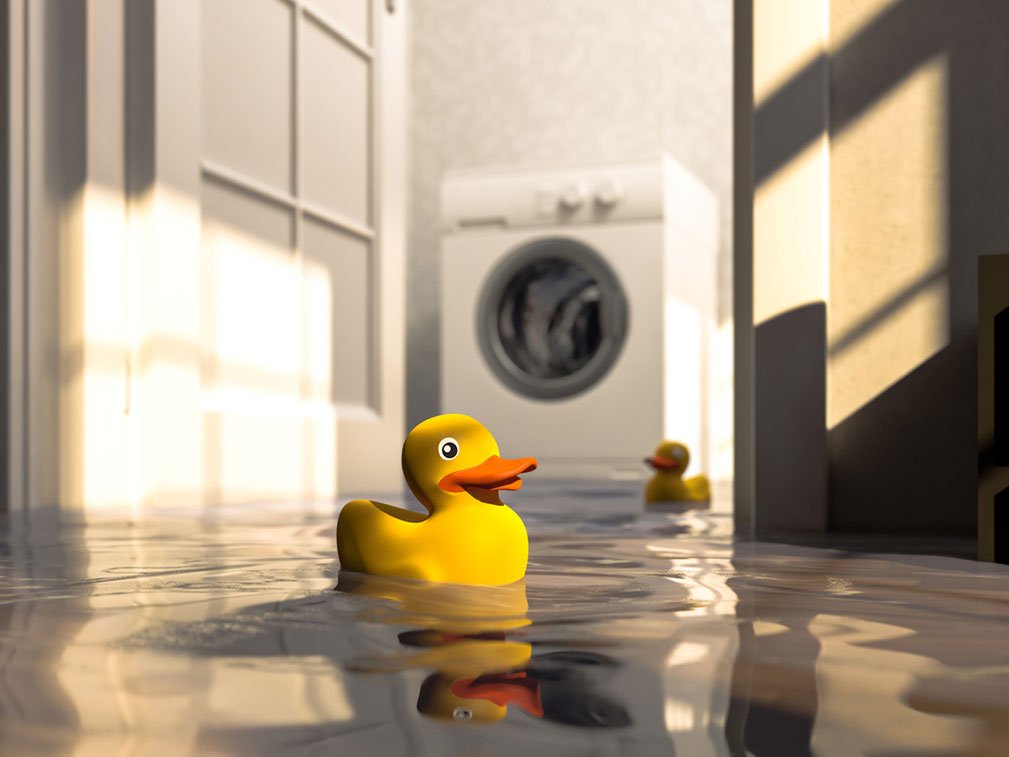It is safe to say that many of us have experienced basement flooding at least once in our lifetimes, costing us our precious furniture, our years’ old family heirlooms, and other dear keepsakes.
As a homeowner, you’ll always be concerned due to rising water levels and floods because that is something you don’t have control over. However, you can take precautions to prevent damage to your belongings, especially in the basement.
Taking precautions will not only save money and precious belongings, it will also save you time and future headaches.
Here’s a guide for basement flood prevention.
Tips for Basement Flood Prevention
Follow these tips for basement flood prevention.
Correct Grading of Yard
You can be at a risk of flooding your basement if the area around your home slopes towards it, instead of sloping away from it.
Grading the yard around your home correctly will make sure that the rainwater drains away from your house and towards the streets and sewers.
Go outside and notice the sloping of your yard. It is ideal if it slopes away from your house. In case it slopes towards your home, you would have to consider various landscaping options to fix it.
You can:
- Divert rain spouts
- Install a green roof
- Install rain garden
- Digging a swale
- Utilizing heavier mulch
Drain Maintenance
Maintaining exterior drains is another way to prevent water damage from basement flooding. There are advanced drain systems out there that move rainwater away from your house and into the drainage systems.
To make sure all gutters are free of litter, begin by arranging daily gutter cleaning for the house. Ideally, you should be getting gutter sweeping at least twice every year, as well as inspection during storm season to make sure there is adequate drainage.
Next, you can link all the downspouts to the gutters and angle them away from your house. You must also anchor and protect the downspouts to make sure that you don’t damage or split them. Even if the ends of the downspouts aren’t connected to the exterior drainage system, they must bring water away from your house.
Finally, to ensure that each is free of garbage and litter, exterior drains must be reviewed periodically. To keep a straight path for water, hack down weeds and consider scheduling a plumber to snake outside drains every few years. Get them clear of garbage or weeds that could proceed to a blockage or interference with the drainage system.
Clean the Gutters In The Fall AND Spring
Sticks and leaves can end up in the gutters. If you do not clean them on a regular basis, you place your home at a risk of flooding.
Blocked gutters are unable to drain adequately during heavy rainfall, causing the water to dump onto the pavement and around the periphery of your house.
Because the gutters are clogged, as heavy rainfall hits the ground, it has nowhere else to go instead of in the basement.
The force with which the water hits the foundation of your home is enough to weaken and damage it.
Therefore, it is better to clean out the gutters proactively instead of risking flooding your basement and damaging the foundation of your home.
Pay Attention to How You’re Disposing Of Cooking Oils
Are you properly disposing of cooking oils?
As cooking oils cool off, they solidify and may clog your drains. Therefore, it is better not to dump oils, grease, and fats into drains. Instead, you can store them in a container and put them in the fridge. As they harden, you may throw them in the trash.

Install A Sump Pump System
One of the basement flood prevention systems is the sump pump system. In case your property was designed during rainfall and without a sump pump, it will be better if you call in a plumber to install the system.
A sump pump is used for preventing flooding and keeping underground areas dry during a flood. It works with the drain system of the basement and is installed in a pit to collect water. The sump pump then pumps water away from your house.
Several drains and flood systems with sump pumps are tied to exterior pipes so that water is moved along efficiently.
A battery backup is also a must, whether your house has an established sump pump or you’re thinking about getting one installed. Flood control devices are effective only if they are already working, because in the case of a power failure, you do not want a sump hole to load up and leak into the basement. When the property lacks electricity, a battery reserve for sump pumps can kick in, and that’s most likely to take place through the worst of rains.
Get Tenant Insurance
This may not really prevent the damage from floods, however, tenant insurance supports you in the case of water damage to your belongings if you’re renting the basement.
It is important to get tenant insurance especially if you’re renting the basement as it is one of the most vulnerable areas to damage in the wake of floods.
In case you’re looking for tenant insurance in Toronto, head over to Surex!
A Final Word
In this article, we discussed the various ways of basement flood prevention.
There are several ways of making sure your belongings are safe in the basement during a flood. These include correct grading of yard, drain maintenance, cleaning the gutters, disposing of oils properly, installing a sump pump system, and getting tenant insurance to protect yourself from damage due to floods if you’re renting a basement.







